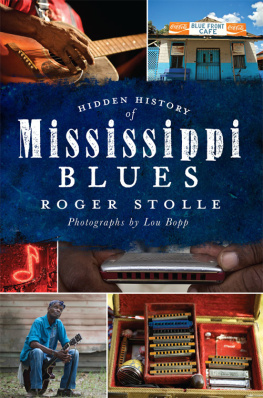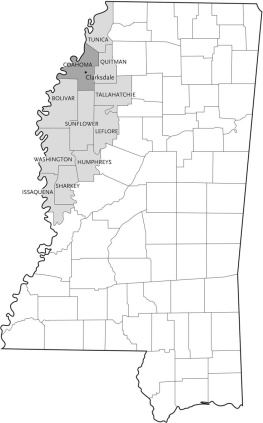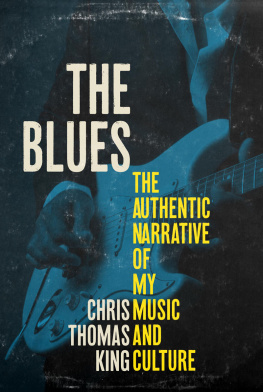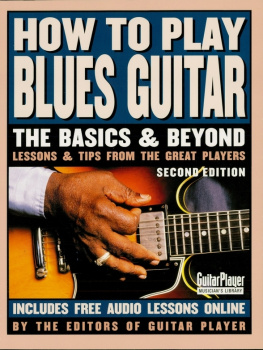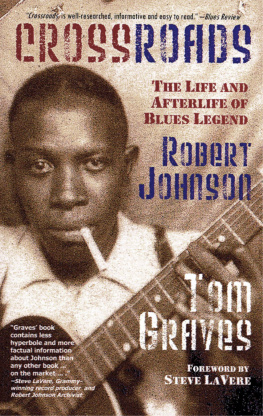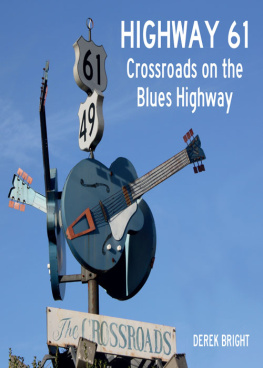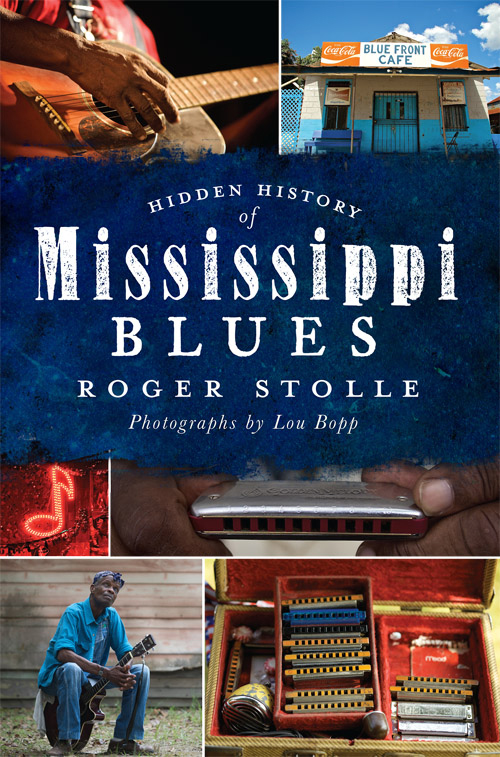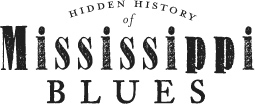

ROGER STOLLE
Photographs by Lou Bopp

Published by The History Press
Charleston, SC 29403
www.historypress.net
Text copyright 2011 by Roger Stolle. All rights reserved
All images copyright Lou Bopp. All rights reserved.
First published 2011
e-book edition 2011
ISBN 978.1.61423.013.7
Library of Congress Cataloging-in-Publication Data
Stolle, Roger.
Hidden history of Mississippi blues / Roger Stolle ; photography by Lou Bopp.
p. cm.
Includes bibliographical references and index.
print edition: ISBN 978-1-60949-219-9
1. Blues (Music)--Mississippi--Delta (Region)--History and criticism. 2. African Americans-Mississippi--Delta (Region)--Music--History and criticism. 3. African Americans--Mississippi--Delta (Region)--Social life and customs. 4. Delta (Miss. : Region)--Social life and customs. I. Bopp, Lou. II. Title.
ML3521.S76 2011
781.64309762--dc22
2011003670
Notice: The information in this book is true and complete to the best of our knowledge. It is offered without guarantee on the part of the author or The History Press. The author and The History Press disclaim all liability in connection with the use of this book.
All rights reserved. No part of this book may be reproduced or transmitted in any form whatsoever without prior written permission from the publisher except in the case of brief quotations embodied in critical articles and reviews.
C ONTENTS
F OREWORD
By Jeff Konkel of Broke & Hungry Records
O ne evening in October 2005, I found myself knocking back a couple of beers at a down-home juke joint in rural Mississippi. The place was packed with a diverse crowd of locals and tourists united by their shared love for one of Americas most important art forms: blues music.
Tucked into a back corner was Delta-born bluesman Big George Brock, blowing furiously into his harmonica. Throughout the juke, feet were tapping and heads were bobbing to the music. A few couples danced lasciviously.
It was the kind of night that blues lovers live for.
As the evening wore on, I struck up a conversation with a man sitting by the door with a stack of CDs. His name was Roger Stolle. Roger had moved to the Delta a few years earlier to open Cat Head Delta Blues & Folk Art, a store overflowing with blues CDs, records, books, magazines and art. In 2004, he had become one of the founders of the Juke Joint Festival, a major new music event in Clarksdale, Mississippi. And in the months prior to our meeting on that October evening, Roger had added music producer to his rsum. Frustrated by the failure of record labels to record Big George Brock, Roger took matters into his own hands and produced Big Georges debut CD, Club Caravan, which would go on to garner worldwide praise.
I thought to myself: heres a guy whos putting his money where his mouth is.
When I returned to my home in St. Louis, I had a new sense of purpose. Inspired by Rogers example, I took immediate action. Within three weeks of our encounter, I formed Broke & Hungry Records, a label dedicated to recording and promoting traditional blues artists from Mississippi.
In the years since, Roger and I have spent a great deal of time together, hanging out in jukes, visiting musicians and collaborating on blues-related projects, like the award-winning movie M For Mississippi.
In the time that Ive known Roger, I have never stopped marveling at the depth of his knowledge of and passion for blues. Over the past decade, no one has done more to promote and support Mississippis rich blues heritage. His store has become a mecca for blues lovers, and hes made a major mark as a blues writer, radio host, music and film producer, artist manager, booking agent and more.
Readers of this book are in for a treat. You couldnt ask for a better guide to the past, present and future of Mississippi blues. Enjoy.
P REFACE
Elvis, Advertising and a State Called Mississippi
M Y I NTRODUCTION TO B LUES
I grew up in a family that didnt really listen to much music. My dad loved talk radio, my mom had a few dusty albums we rarely played and my older sister mostly kept her pop records hidden from her less cool younger brother.
This all changed on the morning of August 17, 1977.
I was ten years old and living in Dayton, Ohio. As I walked into the family room of our small ranch home that morning, the local paper stared up at me from our faux-brick tile floor. Over the photo of a bejeweled Elvis Presley, a banner headline read, The King is Dead at 42. Elviss life, death, funeral and fans made the front page of the newspaper every day for the next week.
After all, as Presleys 1959 LP had proclaimed, 50,000,000 Elvis Fans Cant Be Wrong. The public wanted all the gory details of the Kings barbiturate, jelly-filled life and inglorious bathroom passing. The fans wanted more music, more movies, more Elvis. The newspapers, magazines, radio and television didnt disappoint.
I tell you all this to set the stage. After all, how on earth did a ten-year-old white kid in suburban Ohio find blues music and, twenty-five years later, move to Mississippi to be near it? In a word: Elvis.
Suddenly, his music was everywhere. My mom ordered the Kings Greatest Hits LP off TV for me, and I began spending my paltry allowance on 45 rpm reissues of his earliest sides. I used a cheap cassette recorder my dad gave me to capture what songs I could from TV and radio, and slowly, I began to listen to the music more critically. I started to discern between Elviss Hollywood-meets-Vegas pop songs and his gospel, country and blues-influenced sides.
It wasnt long til I extracted the music that moved me from the stack of cassettes and vinyl. Elviss versions of Mississippi-born classics like Thats All Right (Arthur Big Boy Crudup of Forest, Mississippi) and Mystery Train (Herman Little Junior Parker of Clarksdale, Mississippi). There were Deep Southpenned blues and R&B songs like Good Rockin Tonight, Milkcow Blues Boogie and When It Rains It Really Pours. I moved first forward and then backward, listening to other artists, reading magazines and searching for what made this music so compelling and unforgettable.
I started paying attention to the song credits on the records, and every day, the picture came a little more into focus. This soulful, edgy music wasnt the product of my own white bread ancestry; it was the legacy of an African American art form that emanated from the southfar from my own midwestern comfort zonedeep in the land of catfish and cotton.
The music was blues. The state was Mississippi.
H OW I B ECAME A W RITER
Ive been a writer damn near all my life. Not a wordsmith. Not a poet. Just a writer.
When I was about knee high, I made primitive drawings on three by five cards, punctuated each with a brief line of text, stapled them all together and presented the crudely illustrated narratives to my relatives. I quickly realized that writing was much more my forte than drawing and, later, that it could also be my savior when confronted with my true arch nemesismath.

